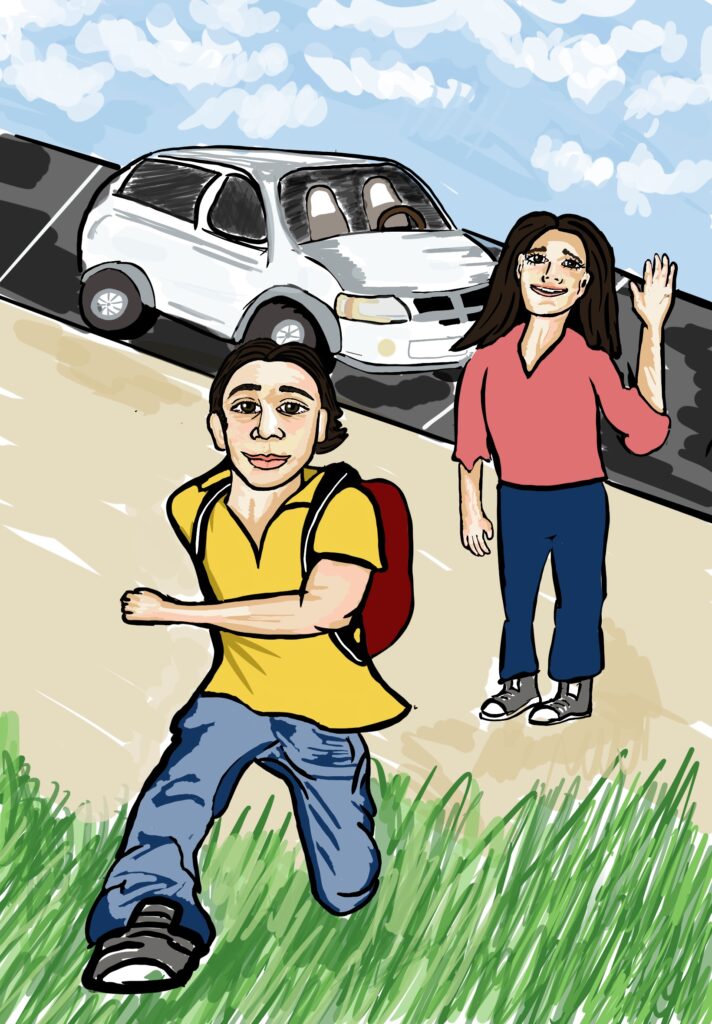Two weeks ago, Choate hosted Nicholas Kristof, a world-renowned columnist for the New York Times. Nicholas Kristof was hands down the best speaker that has stepped foot on the main stage in my time at Choate. The majority of students and faculty that I spoke with about him agreed, offering rave reviews. During the question and answer session that followed Kristof’s talk, almost every line behind the four microphones in the audience was out the door, by far the most students I had ever seen willing to voice their inquiries — he had clearly been an engaging speaker. Kristof truly struck a chord with most members of the Choate community.
How did Kristof manage to captivate the audience? For one thing, his use of anecdotes to teach valuable lessons proved to be incredibly affecting. When asked about his most memorable interview, Kristof replied that his most notable interviews were not with famous Americans or global leaders, but with down-to-earth, kindhearted people, some of whom had never even heard of the United States. (He mentioned a Polish nun who had devoted her life to aid work in the Congo.) Because the underprivileged often do not have a voice, they share their stories with Kristof, who can then inform people of many of the tragically overlooked issues in our world today. To witness conflicts that are often put on the back burner and then share those experiences with unaware Americans is a taxing job, but it is nevertheless worth it to Kristof. It was eye-opening for me and so many others to hear the stories that he had worked so hard to shed light on.
Kristof also talked in depth about the definition of journalism and how it is utilized in 2017. He mentioned that domestic journalism nowadays usually portrays a liberal and a conservative yelling at each other. Readers often choose the sensational and entertaining over the nitty-gritty — and that is an issue. Instead of harping over the fact that Nordstroms dropped the clothing line of Ivanka Trump ’00, we need to educate ourselves on the humanitarian issues in often forgotten countries in the developing world that matter just as much — if not more — and will continue to loom large if we further ignore them. Kristof forced our community to reflect on what we personally care about.
In the final part of his talk, which tied everything together, Kristof proposed another call to action: help those who need it. Although this is a seemingly obvious point, we have “won the lottery at birth,” as Kristof put it. Even for students who struggle with the state of America, or students who combat all kinds of classism, racism, sexism, discrimination, and other forms of oppression — at the very least, we all have the privilege to attend an institution as prestigious as Choate, and it is our job to use this elite education for the greater good. If we use our knowledge solely for our own lives, the Darfur Genocide that Kristof referred to will continue to harm the women and children of Western Sudan; women all over the world will not have access to family planning and will resort to life-threatening abortion procedures; and impoverished children will continue to die needlessly from diarrhea, measles, and climate change. We must take advantage of every opportunity to bring about positive change in the world.
Kristof’s lessons were applicable to the whole Choate community, not just a certain subset of individuals. Unlike past Special Programs that addressed topics such as hookup culture, this talk addressed what students of Choate need to do given our position of privilege. To those who discredited Kristof’s talk for whatever reason, you seriously missed out. No one is the perfect speaker, but in my opinion, Kristof came pretty darn close.




